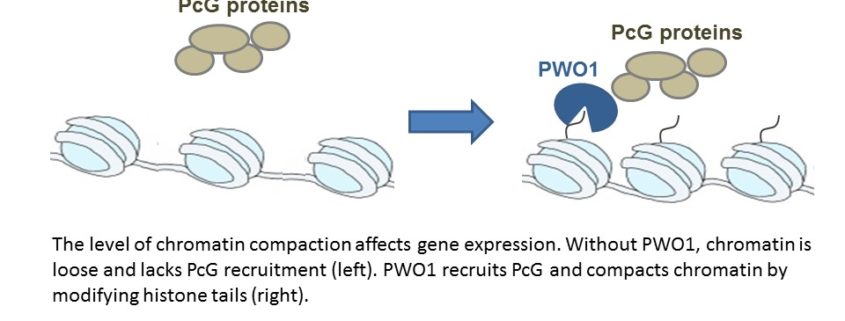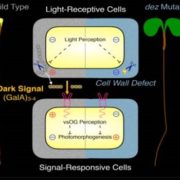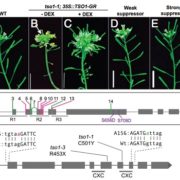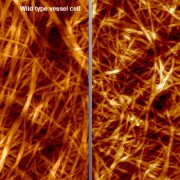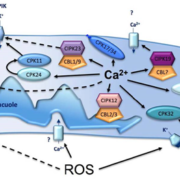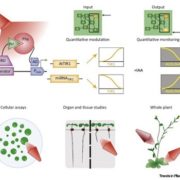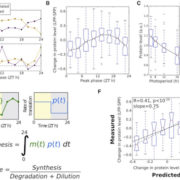Recruiter of Chromatin Regulators
Hohenstatt et al. describe a new recruiter of PcG chromatin regulators affecting flowering and meristem identity in Arabidopsis. https://doi.org/10.1105/tpc.17.00117
By Pawel Mikulski
1) BACKGROUND: Polycomb group (PcG) proteins are key regulatory proteins involved in maintaining the ability (and timing) of cells to differentiate into different cell types during development in plants and animals. PcG proteins control the expression of 10-20% of genes in a genome and lack of their activity causes severe abnormalities leading to diseases in animals (e.g. cancer) or impairment of important agricultural traits in plants (e.g. seed maturation, flowering). PcG proteins act by modifying histones – proteins that, together with DNA, create the structure of chromatin. However, it remains largely unknown how PcG proteins themselves are regulated and recruited to act on the genes they regulate.
2) QUESTIONS: We set out to identify interacting partners of core PcG proteins using a proteomic screening method in the model plant Arabidopsis thaliana.
3) FINDINGS: We identified PWWP INTERACTOR OF POLYCOMBS 1 (PWO1) and found that it likely acts a chromatin “reader” and recruiter of core PcG proteins, potentially controlling their spatial distribution in chromatin. We showed that PWO1 binds histones directly and that such binding is disrupted by a histone modification that influences cell division and stress responses. Analysis of mutant plants lacking PWO activity indicated that PWO family members are essential for the maintenance of stem cells in the meristems and that PWO1 regulates flowering time. We showed that PWO1 controls the expression of key flowering genes by affecting PcG-specific histone modification, accompanied by reduced histone occupancy (reduced presence of histones in chromatin associated with these genes), suggesting that PWO1 plays a role in chromatin remodeling.
4) NEXT STEPS: At the onset of our work, PWO1 was a mysterious factor with little information about its function. The proteomic screening results gave us an exciting opportunity to characterize this unknown protein and answer questions about its mode of action and a role in PcG-mediated chromatin regulation. Our findings offer a number of directions to understand PcG mechanisms and their impact on plant development. As a next step, we aim to elucidate if PWO1 has a global effect on histone occupancy and how it affects spatial distribution of core PcG members in plants.
Hohenstatt, M.L., Mikulski, P., Komarynets, O., Klose, C., Kycia, I., Jeltsch, A., Farrona, S., and Schubert, D. (2018). PWWP-DOMAIN INTERACTOR OF POLYCOMBS11 interacts with Polycomb-group proteins and histones and regulates Arabidopsis flowering and development. Plant Cell. Published January 2018. DOI: https://doi.org/10.1105/tpc.17.00117


